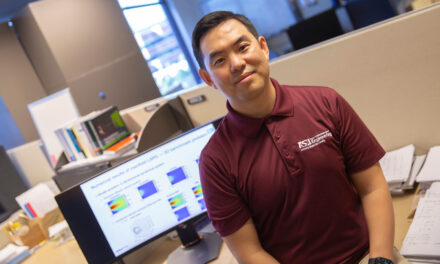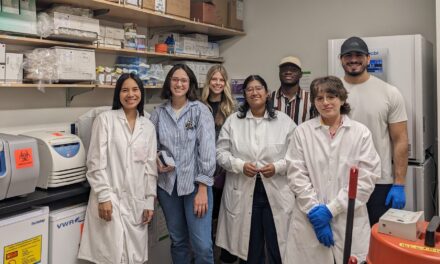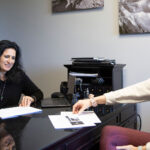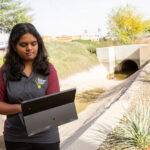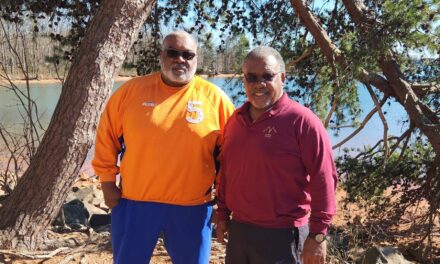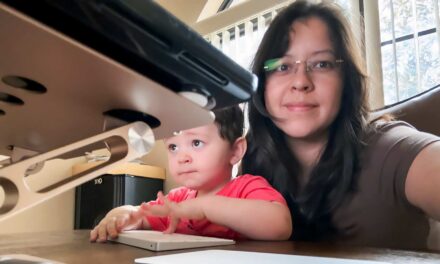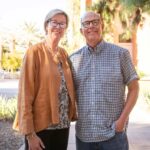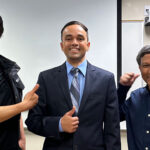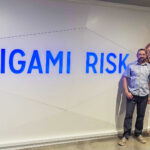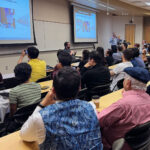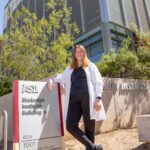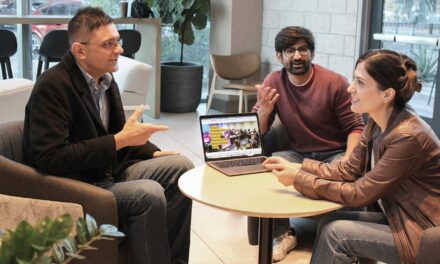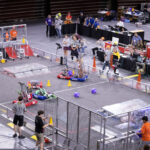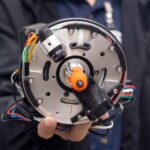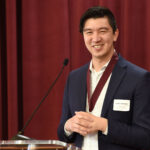
Engineering Dean Kyle Squires is appointed vice provost
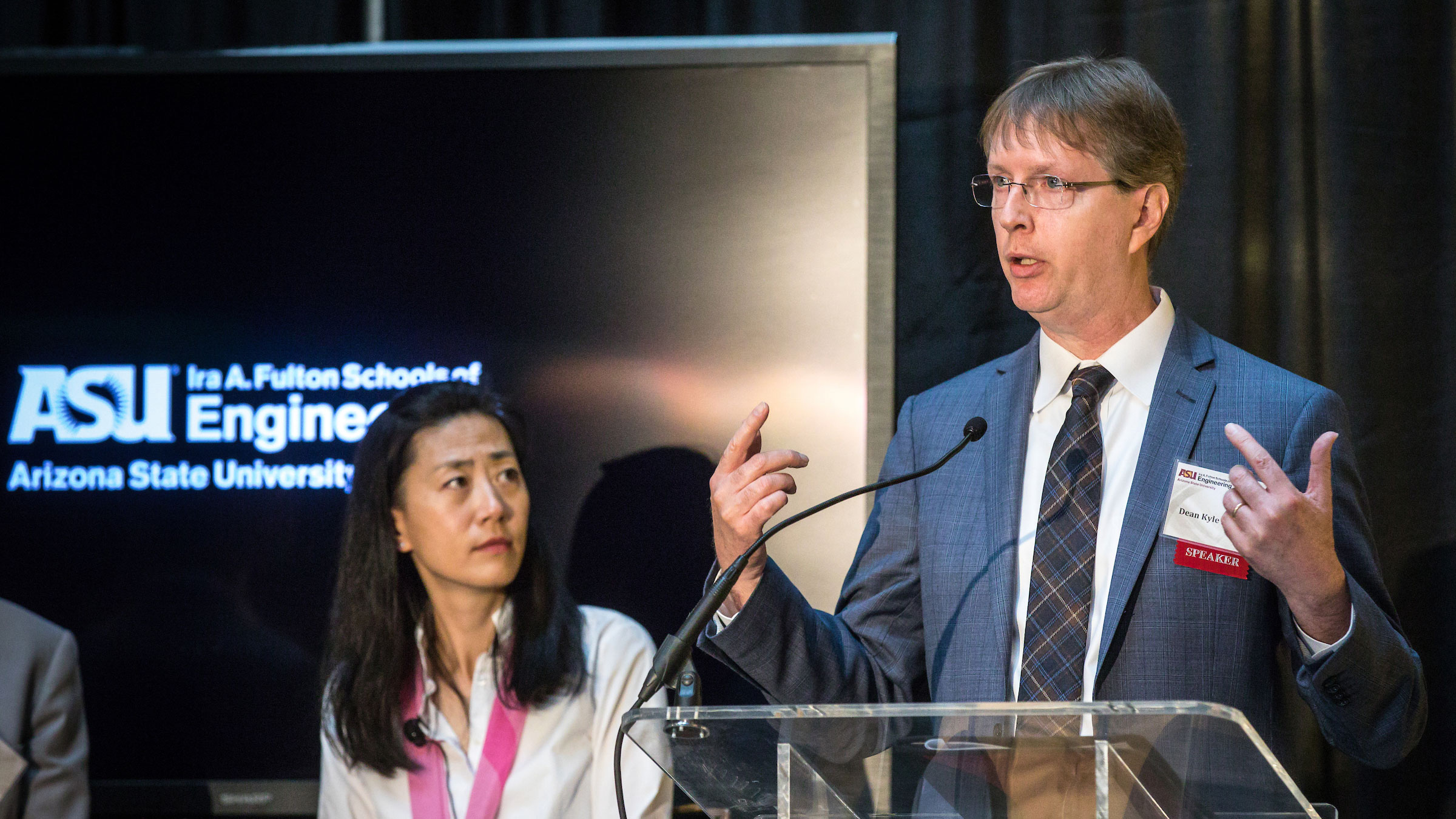
Above: Engineering Dean Kyle Squires delivers the closing comments at "Engineering the Future: Entrepreneurship, partnerships and a commitment to innovation," at the ISTB 4 building on March 21, 2017. Photographer Charlie Leight/ASU News
Kyle Squires, dean of Arizona State University’s Ira A. Fulton Schools of Engineering, has been appointed vice provost of engineering, computing and technology. The new position acknowledges Squires’ role in reshaping engineering education at ASU and how that effort aims to expand in the future.
The appointment, which is in addition to Squires’ duties as dean, takes effect immediately.
“In this role, Kyle Squires will oversee the continued growth and evolution of the Fulton Schools of Engineering and all of the new developments associated with the New Economy Initiative, the launching of the School of Manufacturing Systems and Networks at Poly, the reimagining of the School of Computing and Augmented Intelligence and The Polytechnic School, as well as the launching of The Engineering and Design Institute in London this fall,” said Nancy Gonzales, ASU executive vice president and university provost. “All of these efforts, which have been championed by Dean Squires, will benefit from his foresight, enthusiasm and attention to detail as they gain traction and make an impact.”
For Squires, who has been the dean of the Fulton Schools since 2015, the connecting point for all of these efforts is the central role of discovery, translation and education in a rapidly changing, technologically evolving society. The university plays a key role, Squires said, in providing a portfolio of resources that can be called upon during a person’s career to establish expertise, to adapt to the needs of future work, and to provide value through lifelong learning. The New Economy Initiative is a case in point.
The initiative is a new multiyear program seed-funded by the state of Arizona that will accelerate the rate of faculty growth in the Fulton Schools of Engineering, among other outcomes. The foundation for the New Economy Initiative was built both within the Fulton Schools through its programs and people as well as through partnership with others across the university, especially ASU’s Academic Enterprise and Knowledge Enterprise. These entities working in partnership were able to increase faculty impacts, advance new programs, address critical infrastructure needs, enable cutting edge research and allow the free flow of ideas that refined the larger-scale themes reflected in the initiative.
“The New Economy Initiative, the new and reimagined schools we are launching, the ways we evolve (Fulton Schools of Engineering) and advance our faculty, programs and student engagement opportunities are all vitally important,” Squires said. “But what has also become clear over the past year are how all of these efforts can be expanded to regional and national hubs of excellence, providing unparalleled expertise in critically important areas, and at the scale for which ASU is known.”
“I really want to lean into, understand and shape what is the next big opportunity nationally,” he added. “I want the Fulton Schools and ASU to be involved and, frankly, to lead. We are a significant set of schools that can meaningfully impact the Valley and region through our graduates and the wide range of ideas and engagements from our faculty. I want us to be even more nationally connected.”
The New Economy Initiative aims to build expertise in vitally important new economy fields that will leverage Fulton Schools of Engineering expertise across all of its schools. Central to this effort will be the creation and launch of Science and Technology Centers that would expand the impact in key technology areas of importance for the region, and to conduct world-class research through partnerships with industrial organizations and other public and private entities.
An additional core element of the New Economy Initiative is to fulfill the needs of lifelong learners, those who already have earned their degree but who need to update or reconfigure their knowledge base for the new opportunities that lie ahead.
“In the current workforce, it could be someone who has been displaced, or someone who wants to pivot to a new field or a new role in the industries critical to the Valley,” Squires said. “The university is vital and must play a key role in this effort.”
“It is a testament to Kyle’s vision that the Fulton Schools of Engineering are trusted to play such a crucial role in advancing state and national goals,” said Sally C. Morton, executive vice president of the Knowledge Enterprise at ASU. “The Fulton Schools are both comprehensive and nimble, making them well-positioned to not only react to urgent challenges, but to anticipate the future needs of our community and begin to work now on solutions.”
New school at Poly
Starting this fall, the School of Manufacturing Systems and Networks will begin on the Polytechnic campus. This school, Squires explained, will drive forward learning programs and core research engagements around advanced manufacturing in all of its forms.
“This is where the systems that will underlie future manufacturing will meet key domain needs of direct relevance to our region, including additive manufacturing, semiconductor manufacturing and possibly even biomanufacturing,” Squires said. “The future of manufacturing will look quite unlike what it is today, and this school will define much of where the world is heading.”
Also important for the new school, he said, will be engaging practitioners, professional engineers in the Valley and companies looking for a competitive advantage in a burgeoning field. Here too is where a companion Science and Technology Center will be established on advanced manufacturing to broaden its impact.
Reimagining engineering education
Coupled closely to that effort is the reimagining of ASU’s School of Computing, Informatics and Decision Systems Engineering – renamed to the School of Computing and Augmented Intelligence – and The Polytechnic School. The reimagined School of Computing and Augmented Intelligence will advance foundational and translational impacts in all things computing with important foci in data, analytics, machine learning, cyber and artificial intelligence. The reimagined Polytechnic School will define new ways of connecting with external partners and driving curricular innovations among other outcomes.
“Augmented intelligence is about enhancing human intelligence,” Squires said. “It relies on the central role of computing and the cyber-physical systems that are enabled in advancing the intelligence and capabilities of the person — the human in the loop. The School of Computing and Augmented Intelligence is generating the knowledge to drive these important ideas forward. We look to it to provide leadership.”
Also happening this fall is the launch of TEDI-London. TEDI – The Engineering and Design Institute – is a new kind of engineering education that intends to attract students who typically do not consider engineering. Squires likened the curriculum to on-demand acquisition of knowledge as part of project-based approaches to learning. He added that roughly half of the first class is female, a welcome sign for gender equity in engineering and STEM fields.
“Now is the time when all of these things are converging around engineering, computing and technology, and the Fulton Schools are the catalyst making so much of it happen,” Squires said. “This should be the moment that in 20 to 25 years you will look back and see that Phoenix went from a nice place to live to a great place to live and learn and a thriving global city.”
Written by Skip Derra, director of media relations and strategic communications, Arizona State University.
This content was originally published in ASU News.


